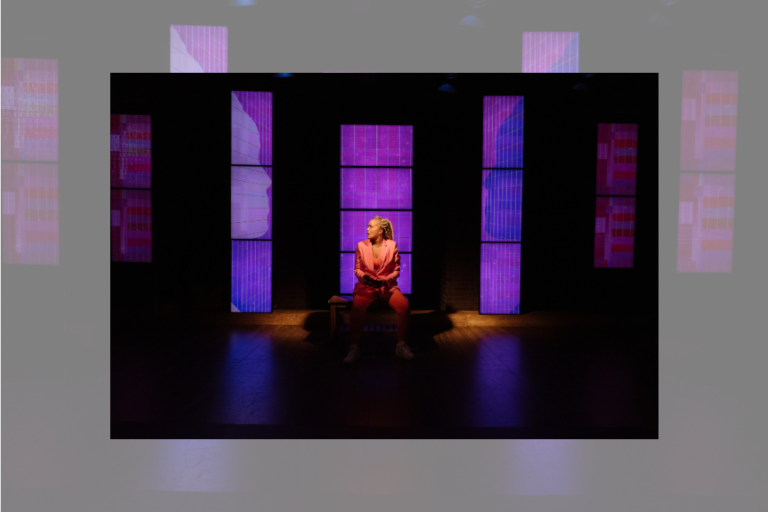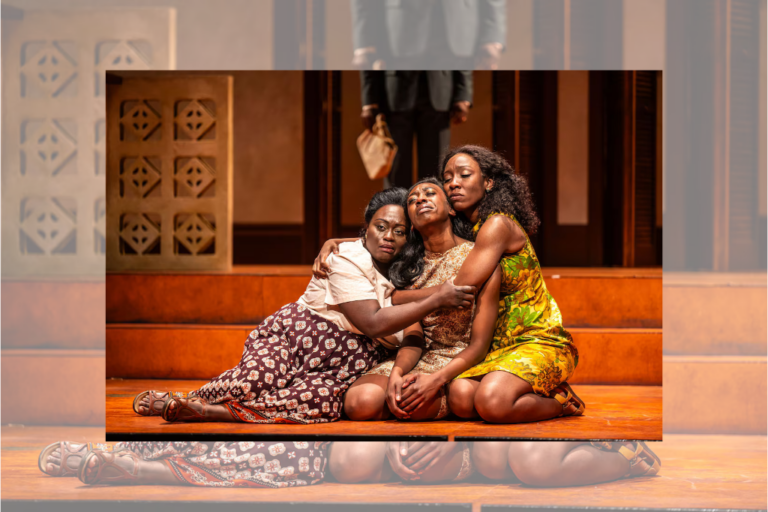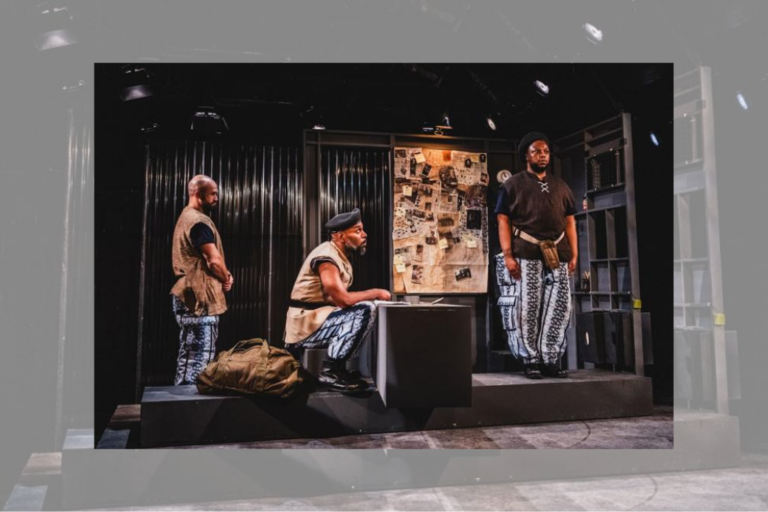REVIEW: speaking of sneaking and The Last Epistle of Tightrope Time reflect each other in palindromic layers
I believe in the statement, “nothing before its time,” and Toronto theatre could not be more in alignment with this idea than by platforming #Blackboyjoy centre stage in theatres across town.
What is time but a cyclical palindrome, weaving its way through our lives? All in one week, Toronto opened three shows: Topdog/Underdog, The Last Epistle of Tightrope Time, and speaking of sneaking, as well as a workshop production of The Musical McCoy, that nod to the past, the present, and the future of Black men’s contributions to the canon of Canadian theatre.
A coincidence? I think not.
Thanks to the creators of both The Last Epistle of Tightrope Time and speaking of sneaking, solo plays which reach back into their own lives to tell us about the journey of Black men, we the audience get to experience the reflection of the old to the young. And as far as they go into the past to bring these stories out, we are drawn into their worlds, those of the griot and Anasi.
Could we say that theatre is the driving mechanism that reminds us of our past actions? Reminding us that we create so that we may learn and change the future?
Stick with me!
Griots are a repository of storytelling traditions, with roots in West Africa. Passing stories on, they are also historians, musicians, poets, and keepers of knowledge central to the Black experience. Griots are essential to the diaspora, helping us to understand who and what we are, while spiders are interdimensional weavers holding up the “nana earth” and the “nana sky” (who feature as characters in daniel jelani ellis’ play speaking of sneaking). Spiders, like Anasi, discombobulate their prey, swaddling them, but in preparation for what?
Think of both of these plays not side-by-side, but instead facing each other and reflecting to us, the audience.
One of the similarities in these two plays is that they each create a bridge between their world and the world of the audience, where we can cross in between. Seamless design work by Andy Moro, from set and costume to lighting and projection design, usher the audience through Walter Borden’s incantation. Rachel Forbes, meanwhile, cocoons the speaking of sneaking audience in ellis’ web, showing us an environment where magic can take place.
But not without a cost.
The Last Epistle of Tightrope Time is for a seasoned theatre-goer. It’s a 90-minute marathon, contracting and expanding the mind, as Borden trails his stories as breadcrumbs, leading us towards truth — but don’t get stuck on one scene, for Borden moves from character to character, each with their own depths, without a breath in between.
While speaking of sneaking uses Caribbean mythology and dance to tell the immigrant story from “yard” to “foreign” (which, as ellis describes it, sounds a lot like Canada), ellis’ transitions from character to place and back again keep you seeking direction — but which way, I ask? This play felt to me as though it was laying new roots.
Is this the making of a trilogy on the horizon?
d’bi.young anitafrika left their mark on ellis’ play, allowing ellis to forge his connection with the audience up close and intentional. Often found in anitafrika’s work, the incredible physicality of Anasi is proof of the rigour of this show. Choreographer Fairy J grounded the play with classic dancehall movements, while lighting designer André Du Toit, filled each scene with shadow and light, allowing the audience to wonder into crevices through the stage.
But each of these plays are a ripple through time, starting long ago.
Borden, famed Black Canadian actor and poet, took 40 years to create this play, and now at the tender age of 81, he is offering an epistle, layered with a captivating verse I rarely experience while watching theatre. When I attended I was transported, guided by Borden’s voice as he weaved his words creating imagery in my mind.
Spellbound by Borden’s presence, this play felt enormous.
The Last Epistle of Tightrope Time comments on topics we’ve explored time and time again; the image of the Black man — the prostitute and the pimp, Babylon — but these are no simple archetypes, for Borden has formulated new tenets to them, cracking them open and revealing his own personal telling. He embodies these characters with such size and vulnerability as he moves about the stage. Borden’s voice creates melodies and patterns of sound, supported by Adrienne Danrich O’Neil’s musical compositions. His exceptional ability to be in conversation with the text, propelling it forward as it responds through the audience, is so subtle.
Think of both of these plays not side-by-side but instead facing each other and reflecting to us, the audience.
What do you see?
As Borden and ellis offer their stories as directions, I consider how their stories have changed my story. And if time is indeed a cyclical palindrome weaving its way through our lives, then I too am a part of that reflection. The question that remains is, why now?
Time will only tell.
Learn more about speaking of sneaking here, and The Last Epistle of Tightrope Time here.
Intermission reviews are independent and unrelated to Intermission’s partnered content. Learn more about Intermission’s partnership model here.















Comments